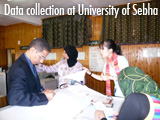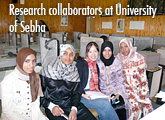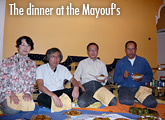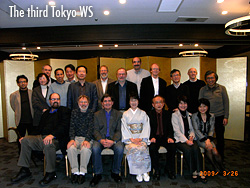In this website I have received some questions on linguistic politeness. I'd like to introduce some of them here, and respond to them.
Before I introduce the questions, allow me to introduce the authors. I hope they will not mind that I omit formal titles, as it is hard for me to identify their respective genders from their names. (The English language is so gender conscious, isn't it? Japanese titles are gender neutral.)
Meryem from Morocco, who is writing a MA thesis on politeness, asked me for a further explanation of discernment/wakimae. Indeed, I must say that I have not publicized enough on this concept. Gusnawaty Anwar from Indonesia, who is writing a dissertation on politeness asked advice and direction regarding research on linguistic politeness.
Zainab from Malaysia, who has expressed interest in my work on linguistic politeness, asked 'if it is worth studying language use patterns, particularly honorifics, in connection with language shift among the Japanese expatriate community.' Hiva from Iran is currently working on Terms of Address and politeness and has asked me to recommend some of my work.
As I read these messages I realized that linguistic politeness has become one of the hot topics in the field of pragmatics. I believe that this flows naturally from our common interest in friction-less communication. I wonder if the idea of living in a world without friction is what attracted many of us to the International Pragmatic Association. I know this is certainly something which has always captured my thoughts.
Studies in linguistic politeness have developed in the field of pragmatics since the Robin Lakoff's seminal work, 'The logic of politeness: Or minding your p's and q's' (1973), which was developed by her student Stephen Levinson and his partner Penelope Brown. The framework on linguistic politeness developed by Brown & Levinson (1978,1987) has had a tremendous influence on this topic. However, as Brown and Levinson themselves admit, that framework is not enough to deal with every aspect of linguistic politeness, particularly those which involve socio-cultural elements. It is in this area in particular where papers containing indigenous perspectives will play a critical role. The countries I have received messages from, Morocco, Indonesia, Malaysia and Iran, are areas where Islamic culture is dominant. Perhaps this means that the concept of discernment/wakimae as an alternative or supplementary framework of linguistic politeness might be more relevant to people who live observing strict religious doctrines.
As a way to respond to these requests, I have made two of my papers readable on this website in the Bibliography section.
- 2002c "The Speaker's Viewpoint and Indexicality in a High Context Culture". Bunka, Intaakushon, Gengo [Culture, Interaction, and Language] (eds. with Kuniyoshi Kataoka). Tokyo: Hituzi Syobo, 3-20.
- 1992c "On the Notion of Wakimae: Toward an Integrated Framework of Linguistic Politeness". Mosaic of Language: Essays in Honour of Professor Natsuko Okuda. Mejiro Linguistic Society (MLS), 298-305
I hope that they will spark a new dialogue that will continue to move our field forward.
![Sitting-next-to-the-President-of-University-Sorbonne[2].jpg](http://sachikoide.com/blog/images/Sitting-next-to-the-President-of-University-Sorbonne%5B2%5D.jpg)



